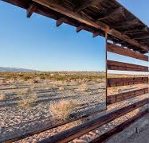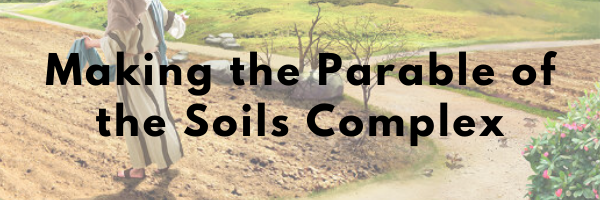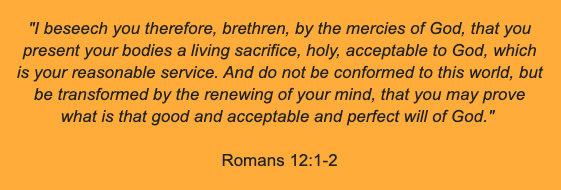 Mordecai’s exhortation “For Such a Time as This” was extended to Esther whom he had raised as his daughter after her parents' death. We often quote this as an individual faces a difficult decision. Every pastor in America has had to make difficult decisions in recent weeks, and I hate to be the bearer of bad news, but there will be several more in the immediate future. The fact is that every pastor has been called of God to under-shepherd a part of God’s flock as its spiritual leader. But not every pastor is comfortable with the reality that along with the call to proclaim from the pulpit “thus sayeth the Lord” there comes a responsibility to step up as a leader and make difficult decisions. Those decisions will need to be bathed in prayer, backed with wise counsel, communicated clearly, and implemented well. If those basic steps are not taken and decisions are not made, then a pastor will find that the broader context of what Mordecai told Esther will likely come to pass. “For if you remain completely silent at this time, relief and deliverance will arise for the Jews from another place, but you and your father’s house will perish. Yet who knows whether you have come to the kingdom for such a time as this?” Forgive me for getting “down and dirty” with what I am seeing, but American Christianity is at a critical crossroads. We cannot and will not survive with a “business as usual” mindset. If you think your church can get back to normal church life by simply outlasting COVID and surviving the “current” racial tensions, I am suggesting you will be very disappointed. There were significant indicators that the average American church was not healthy in February. I would suggest that if you have decided to simply wait out our current challenges, then “relief and deliverance will arise…from another place.” I don’t pretend to have all the answers, but I do know we have to correctly define reality and get a better grasp on the Biblical basics of how to make disciples, who make disciples, who make disciples. In doing a re-read of J. Robert Clinton’s book The Making of a Leader, I ran across the description of an epiphany moment that Dawson Trotman, the founder of the Navigators, had. "Dawson picked up a hitch-hiker whose speech indicated he was not a believer. Within moments he discovered this man was one of his “converts” of the previous year whose decision had not been followed up and who had virtually died on the vine. Shaken, Dawson responded that there must be countless such persons who had sincerely, perhaps with tears, called on the name of the Lord, but whose lives had not been changed. What was wrong? My prayer is that the current challenges will startle you and begin a journey of self-analysis that will help you choose a better path for your future and by that a better future for your church. Heartland Church Network exists to connect, support, and start churches passionate about changing the world. We are here for you!
0 Comments
 The other day I was asked, “What do you see as the number one leadership development issue in the church today?” As I approach the end of my 27th year of serving as a Director of Missions and having worked with hundreds of pastors and lay leaders, I answered without a lot of hesitation, “Pastors and Christian leaders who don’t have an honest assessment of who God has created them to be or a willingness to celebrate how God uniquely created them to serve Him.” When most of us look into a mirror we want to see someone else: someone we admire and strive to emulate. Psalm 139 quickly comes to mind as a source of wisdom on this topic. David acknowledged that God knows exactly what we look like when we stand in front of His mirror: O Lord, You have searched me and known me. You know my sitting down and my rising up; You understand my thought afar off. You comprehend my path and my lying down and are acquainted with all my ways. (1-3) So how should we respond to that kind of knowledge?
David also stated that God’s mirror is a “magic mirror.” It is able to guide us into the knowledge of who He wants us to be: Your eyes saw my substance, being yet unformed, and in Your book they all were written, the days fashioned for me, when as yet there were none of them. (16) So how should we respond to that kind of knowledge?
How precious also are Your thoughts to me, O God! How great is the sum of them! If I should count them, they would be more in number than the sand; When I awake, I am still with You. (17-18) So how should we respond to that kind of knowledge?
David closes the Psalm by asking God to help him see what God sees today when He looks in the mirror: Search me, O God, and know my heart; Try me, and know my anxieties; And see if there is any wicked way in me, And lead me in the way everlasting. (23-24) So how should we respond to that kind of knowledge?
The one thing you don’t want to see when you look into God’s mirror is something like the reflection that is seen in this roadside mirror that was erected along a desert road. In these days that are truly testing the souls of all of us, my prayer is that you will reflect a vibrant radiant glow that comes only when one loves the Lord with all their heart and soul and mind and when they love their neighbor as themselves. I begin this brief article with the reality that I am touching on an incomprehensibly complex issue that no matter what I say will be viewed by some as inappropriate. That issue is racism. Thanks to the proactive nature of Heartland Church Network’s Moderator, Rev. Dr. Ralph Lassiter, HCN has hosted a couple of opportunities for dialogue around the issue of racism. Although we have barely chipped an ice cube off the top of a huge iceberg, we have begun a conversation that I pray will incite future dialogues. Stay tuned for the announcement of future dates and times. But for a moment, let me ask you to reflect on a familiar parable: the Parable of the Soils/Sower (Matthew 13:1-23, Mark 4:1-20, and Luke 8:4-15). First, I would note that the parable has two titles based on two very different perspectives—that of the soil and that of the sower. Your perspective - who you are and your life experiences- WILL inform your position on race. Second, I would note that the parable provides a broad and very general description of four types of soil/ways that people respond to Christ:
A third area I see in the parable stems from my agricultural background. For any plant to be healthy, it needs water and nutrients from the soil. And based upon the plant species, the type of soil and specific nutrients needed for healthy growth will vary. The soil will need the right pH; the right texture, depth, and drainage; the right balance of major nutrients (N/P/K); and the right balance of micro-nutrients. In other words, what works for one person to be able to understand and respond appropriately to the race issue can and at times will be different from that of another. The fourth area of understanding also comes from my agricultural background. Plant nutrients come from both the air (respiration and photosynthesis) and the soil (absorption). From a human perspective, let me suggest that our root structure absorbs from the very soil from which we were created a sin nature. The name Adam is derived from the Hebrew word for earth/soil. In other words, at the tip of each of our roots (and they can number in the hundreds), we will find a single element being absorbed daily: sin. However, let me push the analogy just a bit, and point out that a plant also gets nutrients from the air (respiration). Note that the words for wind and spirit are the same in both Hebrew (ruach) and Greek (pneuma). Also, note that the sun (our source for light) is the ingredient required for plant photosynthesis. Jesus said, “I am the Light of the World.” In other words, we daily deal with the reality of our sin nature being absorbed from the very root of our existence; however, its impact can be countered by our willingness to receive the Light of the World into our life and a willingness to surrender our wills to the Holy Spirit which indwells the life of a believer. As we respond biblically to the issue of racism, we must acknowledge both its complexity and its singular source (sin) as well as its singular solution (radical life-transforming salvation). Keep praying and keep talking to God and to one another. |
AuthorRetired in April 2022, Mark R. Elliott served as a Director of Missions (Associational Mission Strategist) in Western Iowa and Eastern Nebraska for almost three decades. He is a strong advocate for obedience and Biblically based disciple making. As such, he knows that making healthy disciples requires Christian leaders to be constantly pursuing spiritual maturity—be lifelong learners. Because of the time constraints of ministry, most pastors focus their reading list on resources that assist them in teaching and preaching the Word of God. As such, books focusing on church health, leadership development, and church growth tend to find their way to the bottom of the stack. With that reality in mind, Mark has written discussion summaries on several books that have helped him to personally grow in Christ and that tend to find themselves on the bottom of most pastor’s stack. Many pastors have found them helpful as they are able to more quickly process great insights from other pastors and authors. Archives
April 2022
Categories |
Looking for something? |
© COPYRIGHT 2024. ALL RIGHTS RESERVED.
|






 RSS Feed
RSS Feed
